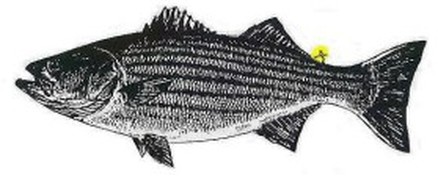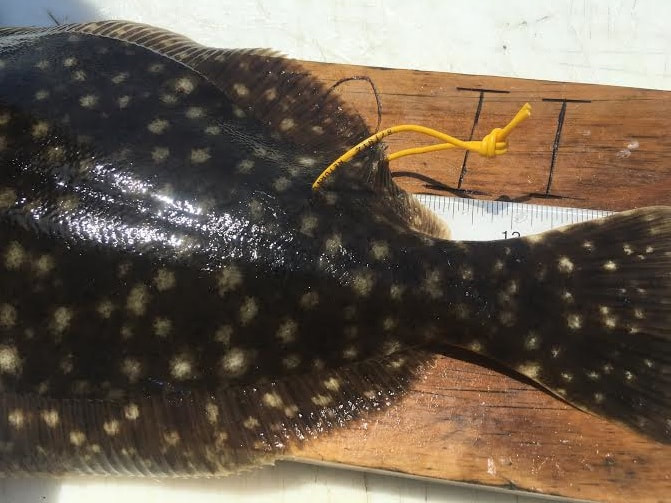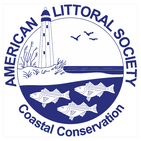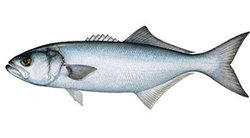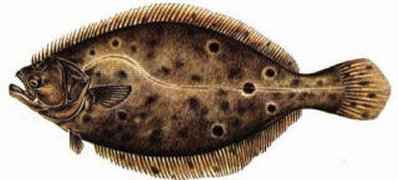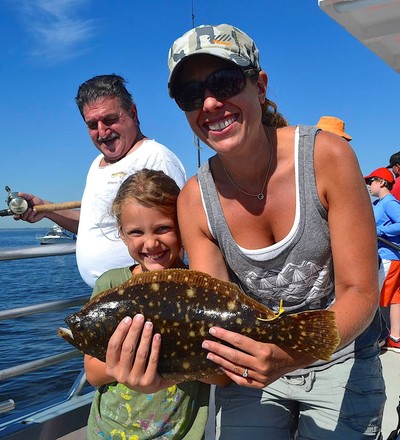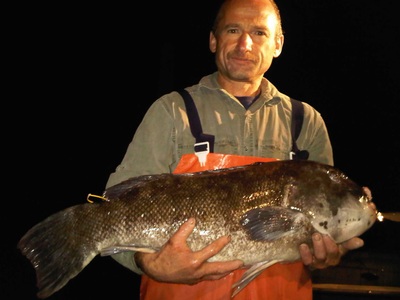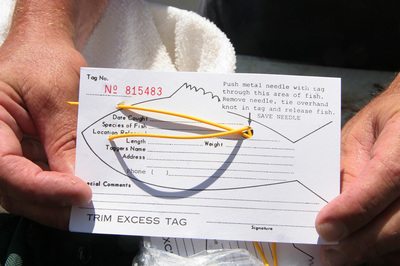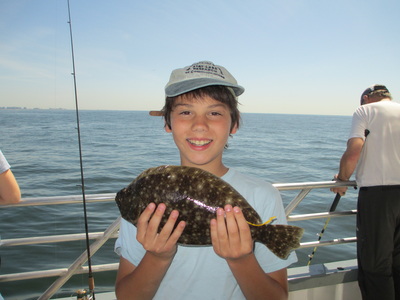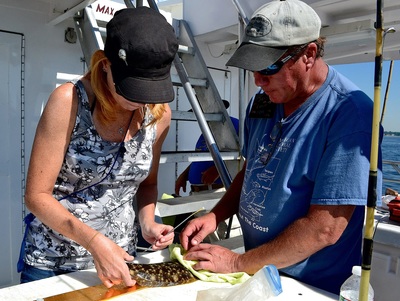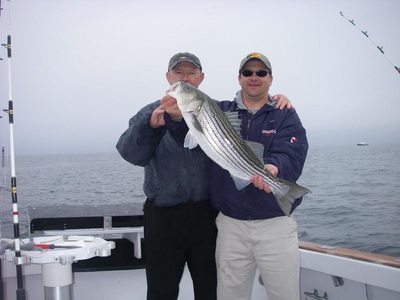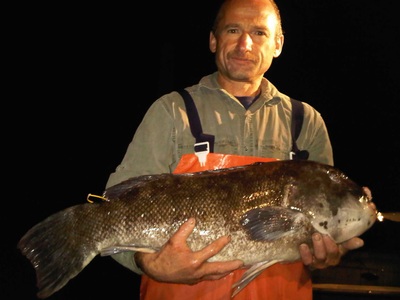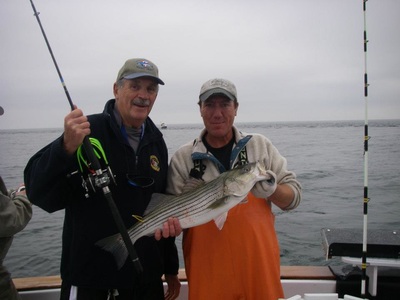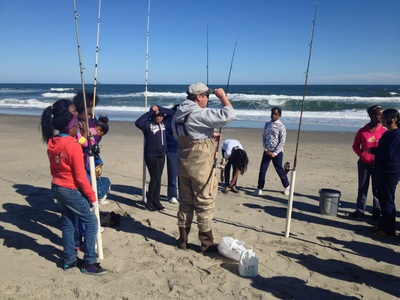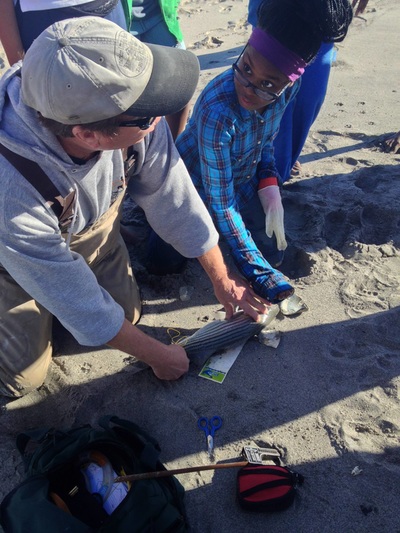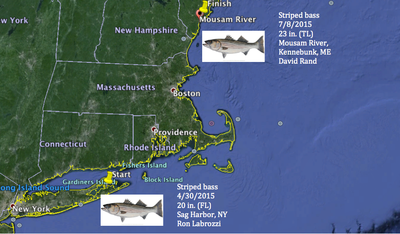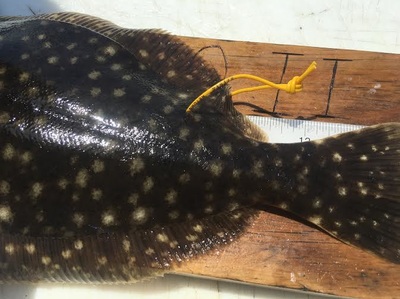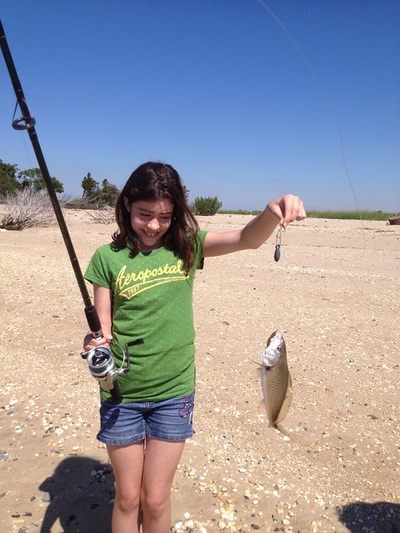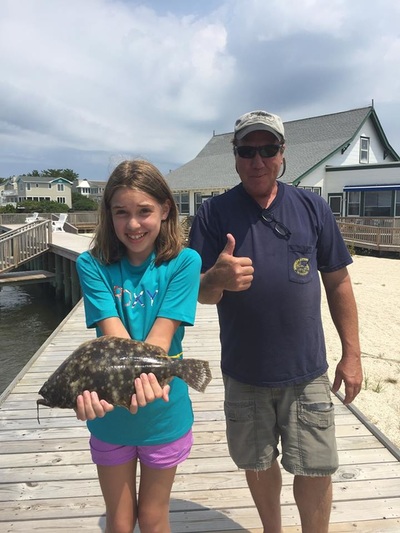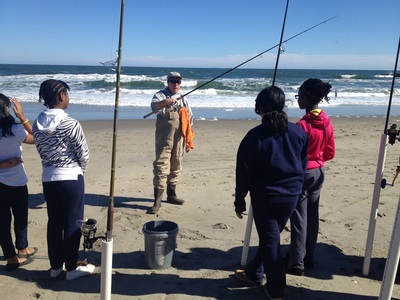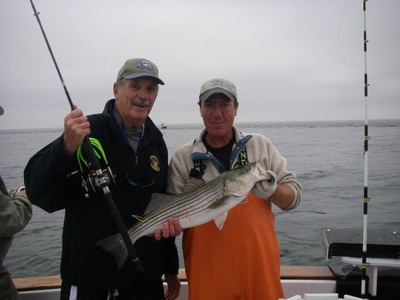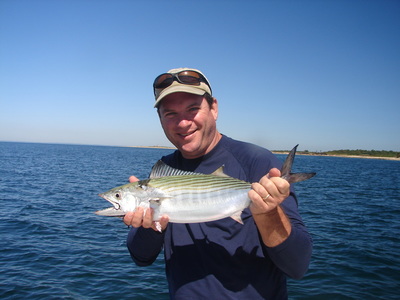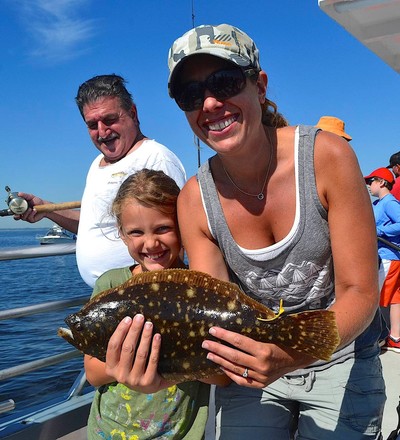Since the inception of the Society's Fish Tagging Program in 1965, more than 970,000 fish have been tagged by our volunteer taggers.
|
More than 5% of those tagged fish have been recaptured. Every April, the data that has been gathered over the previous 12 months is sent to the National Marine Fisheries Service, at Woods Hole Oceanographic Institute, MA, and the Atlantic States Marine Fisheries Commission.
Originally, the Society focused its tagging efforts towards coastal Atlantic sharks. During the early 1970's, in response to a precipitous decline in striped bass stocks, the Society's Fish Tagging Program decided to switch its target species to striped bass, and other fishes of the littoral zone, such as; summer flounder, bluefish, tautog and black seabass. Currently the program has more than 450 active taggers who tag over 15,000 fish per year. If you'd like to become a tagger yourself, please contact [email protected] or call 732-291-0055 |
ORDER TAGGING SUPPLIES
You must be a current member of the American Littoral Society to receive tagging supplies. If you're not sure about your membership status, please call us at 732-291-0055. If you would prefer for us to use Fedex/UPS to mail your supplies to you instead of using the US Postal Service, please do let us know. You can call us at 732-291-0055 or email Emily at [email protected]. |
Why Tag Fish?
|
Tagging or marking animals has long been an accepted biological method for monitoring wildlife; birds are banded on their legs, black bears and grizzly bears carry radio transmitters, as do sea turtles. Even monarch butterflies have been banded with delicate mylar patches. The reason for doing this is to tell one creature from another so its daily movements or seasonal migrations can be studied and rates of growth can be learned.
Using various marking methods, scientists have found the wintering grounds of the monarch butterfly in Mexico, pinned down the summer and winter ranges of polar bears, arctic terns, and red knots, and the breeding grounds of some marine turtles. Fish marking or tagging is also an accepted method of study. Sometimes marine biologists clip fins of stocked fish to keep track of them. Shortnosed sturgeon, an endangered species, have swum in their coastal river haunts with radio transmitters telling all. For studying menhaden (pogy), an internal metal tag has been used, to be picked up by a magnet at the processing plant where the fish are ground and cooked. Tagging is even more important for fishes because, unlike other animals, they spend almost their entire lives out of the sight of the researchers trying to learn about them. For example, biologists may need to find out the movements of striped bass after spawning in the Nanticoke River, a tributary of the Chesapeake. To help find out, they would set nets in the river after spawning and then capture, tag, and release 1000 striped bass, and track returns on these fish during the rest of the season into late fall. Likewise, fisheries biologists on the West Coast would tag salmon from selected streams and watch for those salmon to return to their natal streams to spawn 2-5 years later. With enough tagging data, they could estimate the percentage of fish that returned and gauge a mortality rate for the fish spawned in that stream. Our tagging program aids scientists, too. All of our tagging data are transferred to the database of the National Marine Fisheries Service Laboratory in Woods Hole, MA. When you tag a fish for the American Littoral Society, you can be sure the information gained is put to good use. |
Become a Tagger
Become an American Littoral Society fish tagger. You can learn how YOUR fish grow and where they go. Plus, you will contribute data needed to protect and preserve fish for your generation, and generations to come.
To tag fish for the American Littoral Society, you must be 18 years or older and a member of the Society. Once a member, new taggers receive a packet of information about how to get started, along with access to our tagging staff, who are available to answer questions. Taggers purchase tag kits from the Society for $7 per kit which includes a set of 10 tags and 10 data cards. Needles can be purchased separately. Membership dues and the tag kits and needles are tax deductible, shipping costs are not.
In addition to tagging on your own time, we run an Annual Fluke Tagging trip in Raritan Bay near Sandy Hook. We also offer surf fishing clinics if you or members of your family would like to learn how to fish the surf. You can check out these opportunities on our field trip webpages.
For First-Time Taggers:
New fish tagging memberships include one-year membership in the Society, and two tagging starter kits (10 tags, 10 data cards, 1 applicator needle in each) and all the instructions you need to start tagging fish. Once you get the hang of it, you'll be able to purchase multiple tag kits without needles for $7 each. Note - new fish tagging memberships include an Individual Membership, if you would like to upgrade your membership to a Family Membership or other level, please contact Lindsay McNamara, Director of Development, Membership and Outreach, at [email protected].
Don't want to pay online? Click here to print off our form and mail in with your check.
Renewing Taggers:
You can renew your membership online on our membership page or by downloading the form above. You must purchase tag kits and needles separately. If you have other questions or concerns, contact the Society at 732-291-0055 or [email protected].
To tag fish for the American Littoral Society, you must be 18 years or older and a member of the Society. Once a member, new taggers receive a packet of information about how to get started, along with access to our tagging staff, who are available to answer questions. Taggers purchase tag kits from the Society for $7 per kit which includes a set of 10 tags and 10 data cards. Needles can be purchased separately. Membership dues and the tag kits and needles are tax deductible, shipping costs are not.
In addition to tagging on your own time, we run an Annual Fluke Tagging trip in Raritan Bay near Sandy Hook. We also offer surf fishing clinics if you or members of your family would like to learn how to fish the surf. You can check out these opportunities on our field trip webpages.
For First-Time Taggers:
New fish tagging memberships include one-year membership in the Society, and two tagging starter kits (10 tags, 10 data cards, 1 applicator needle in each) and all the instructions you need to start tagging fish. Once you get the hang of it, you'll be able to purchase multiple tag kits without needles for $7 each. Note - new fish tagging memberships include an Individual Membership, if you would like to upgrade your membership to a Family Membership or other level, please contact Lindsay McNamara, Director of Development, Membership and Outreach, at [email protected].
Don't want to pay online? Click here to print off our form and mail in with your check.
Renewing Taggers:
You can renew your membership online on our membership page or by downloading the form above. You must purchase tag kits and needles separately. If you have other questions or concerns, contact the Society at 732-291-0055 or [email protected].
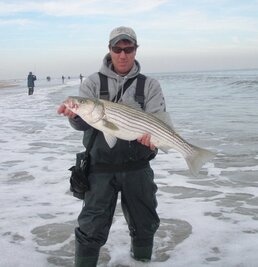
On Thursday, Jan. 28, 2021, we received very sad news: Jeff Dement, long-time Fish Tagging Program Director for the Littoral Society, had passed away.
Jeff loved the Society, fish, trees, and science. The tagging program and its taggers were at the center of his professional life. He loved the science and the tales taggers tell.
He was a gifted educator and taught untold numbers of young people to fish – many of whom would never have had the opportunity but for Jeff and the Society’s programs that he helped create.
Jeff's passing was a huge loss for his family and friends, but also for the Littoral Society. The fish tagging program goes back to the beginnings of the Society and has more than 400 active taggers. Jeff was director of the program since 2008.
Jeff loved the Society, fish, trees, and science. The tagging program and its taggers were at the center of his professional life. He loved the science and the tales taggers tell.
He was a gifted educator and taught untold numbers of young people to fish – many of whom would never have had the opportunity but for Jeff and the Society’s programs that he helped create.
Jeff's passing was a huge loss for his family and friends, but also for the Littoral Society. The fish tagging program goes back to the beginnings of the Society and has more than 400 active taggers. Jeff was director of the program since 2008.
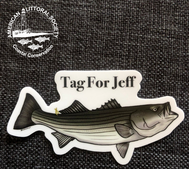
To memorialize Jeff and his contributions, one of his former interns (Sam Glover) created a sticker that can be purchased online. $2 from each sale will be donated to the Society in support of the Fish Tagging Program.
Stickers can be purchased from the Scaled Up shop on Etsy. Click link below to purchase.
https://www.etsy.com/listing/955393506/tag-for-jeff-sticker
Stickers can be purchased from the Scaled Up shop on Etsy. Click link below to purchase.
https://www.etsy.com/listing/955393506/tag-for-jeff-sticker

